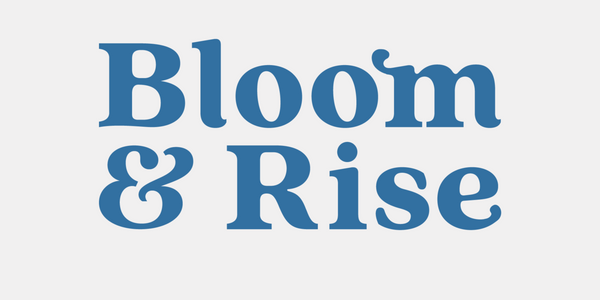Postpartum depression is a bear. A beast. A monster in the closet that we’re too afraid to look at. The stigma can be so high and the shame can be so real. I just had a baby, so why am I so sad and angry?
I distinctly remember the fresh 48 photographer coming to my recovery room after my first was born in July, 2019. She kept commenting on how beautiful my family was and posed us in various positions. All I could remember was the absolute pain I was in after giving birth to my nine pound baby. My eyes are closed in all of the pictures as I was pretending to look down at my son, but really I was crying.
At first, I thought this was baby blues. But the rage continued. The sadness was all encompassing. Breastfeeding struggles ensued. The crying and screaming my child was doing during feeds sent me into a spiral. And I was alone.
It wasn’t until 6 months postpartum that my husband and my mom expressed deep concern over my mood and general unhappiness. They were right - I was so engrossed in my groundhogs day routine that I became unaware of just how awful I was feeling. From there, I started implementing changes. I want to share some small steps that helped with my own personal struggles. If you’re reading this and can relate, I see you. You are not alone.
- Therapy. You can look for a perinatal specific therapist in your area and also filter by insurances. There are also free online support groups that you can find in case cost is a factor. There is also a perinatal specific helpline that can help get you connected to resources in your area.
- Medication. Connecting with your OB can be a good first step in figuring out if medication is right for you. Finding a perinatal specific psychiatrist can be important when navigating breastfeeding/trying to conceive subsequent children as you want them to be knowledgeable of current research.
- Support system. I reached out to my support system and expressed my challenges. They joined me on walks, brought over food, offered to babysit, and more. Make sure to reach out to your friends/family who can support you in the way that you need and not frustrate you further!
- Meet basic needs. I made sure to eat foods that fueled my body, drank lots of water, and navigated ways with my partner to ensure that I got restful sleep throughout the night if possible.
- Engage in self-care. I tried to find an activity that made me feel like me. It wasn’t drastic, but as soon as my husband got home from work, I made sure to take my dog for a walk and listen to a podcast. That was a ritual I had before having my child and it gave me a small glimpse of my identity aside from mothering a tiny human.
- Set realistic expectations. I had to set the bar on the ground. If I successfully took care of my baby, that was an A+++++ day. If I was able to complete a load of laundry and order groceries for delivery, well that was remarkable and exceeded expectations substantially. Setting small, realistic goals for myself saved my sanity.
There are more things that I implemented - but every person’s journey to feeling better can look different. Please take care of you. You are so important.
The boxes at Bloom and Rise are the ultimate pick-me-up and are designed for YOU. Each box comes with custom resources by perinatal and infant mental health therapists (me + Jen) to help support you as you navigate the early stages of motherhood. We’ve got you.
Take care of you,
Aimee

